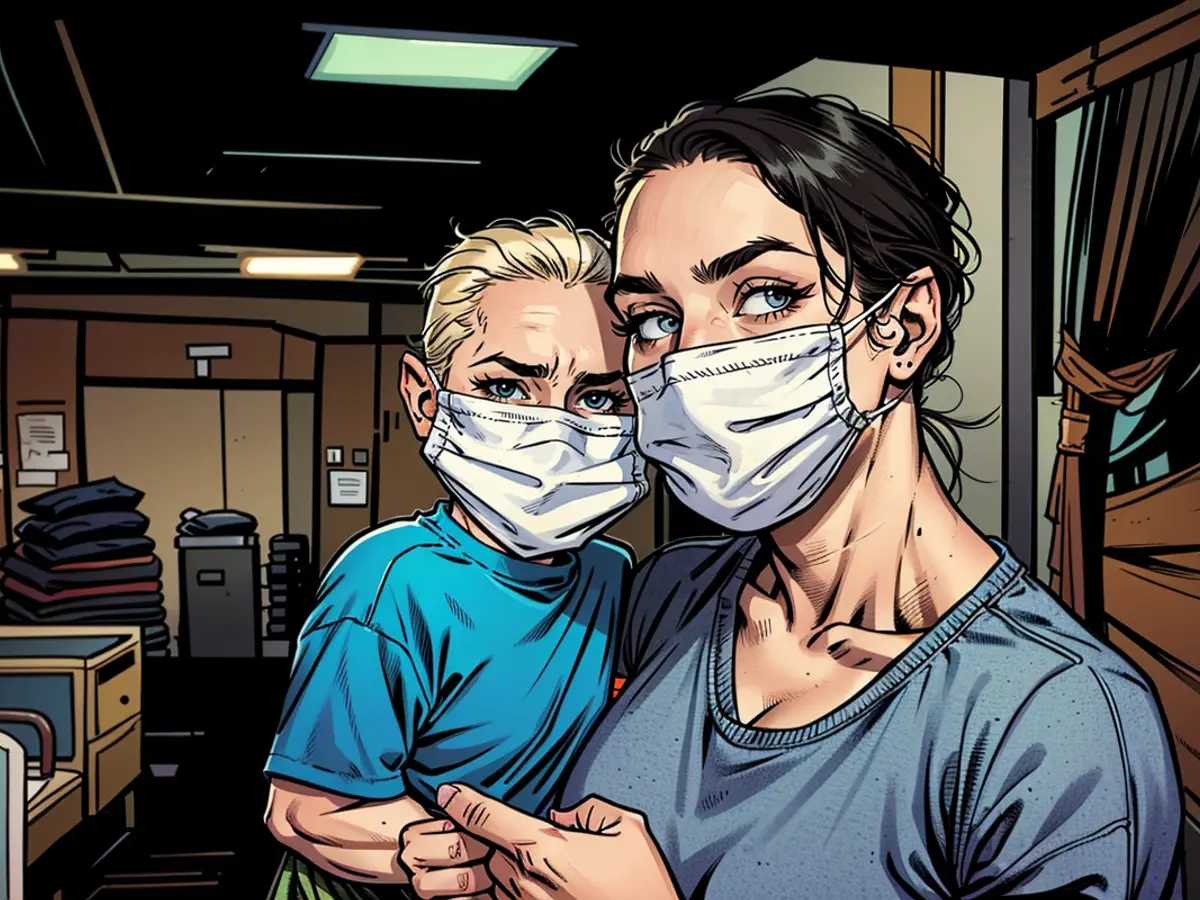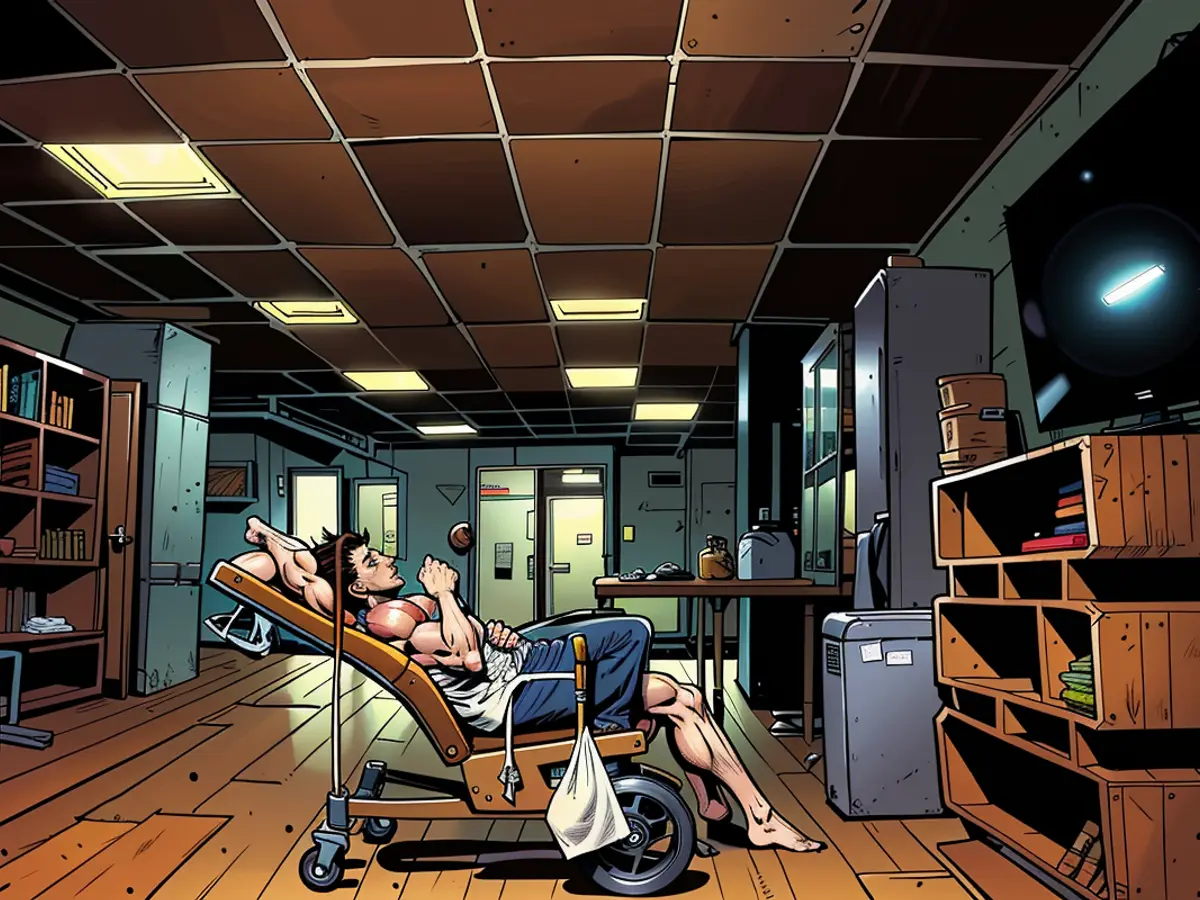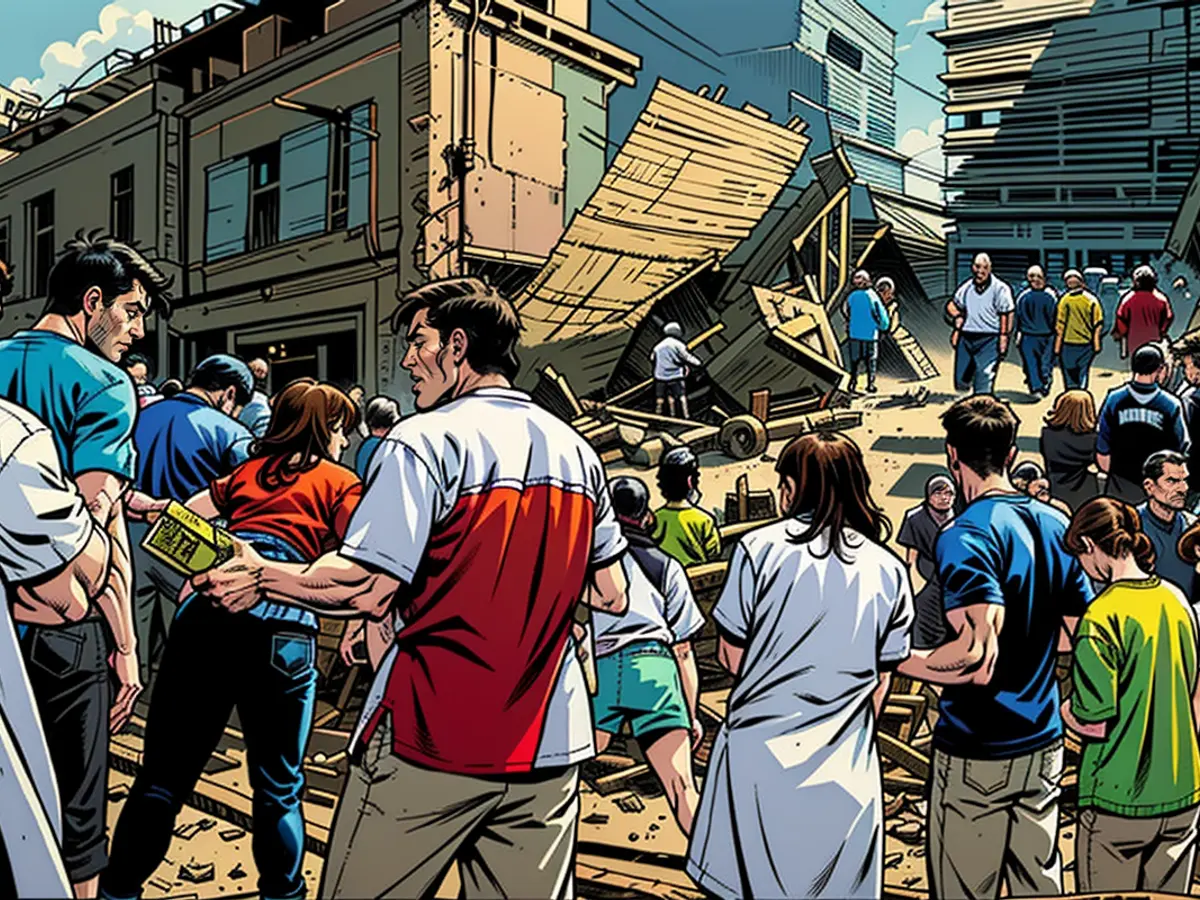Parents of seriously ill children are despairing after the attack
After the attack on a clinic in Kiev, there are not only dead and injured to mourn. Many parents are unsure how to continue with the treatment of their seriously ill children. Some hope for the abroad, while others want to stay in their homeland despite major problems.
At the National Cancer Institute in the Ukrainian capital Kiev, things are busier than usual since a Russian missile hit the largest children's hospital in the country this week. Dozens of young cancer patients had to be evacuated. The heaviest Russian bombardment of Kiev in four months severely damaged the Ochmatdyt Children's Hospital on Monday, terrorizing families and severely affecting their children, who were already struggling with life-threatening illnesses. Now some families are confronted with the dilemma of where to continue their children's treatment.
Oksana Halak received her son Dmytro's diagnosis in early June. He suffers from acute lymphoblastic leukemia. She quickly decided to have him treated at the Ochmatdyt Hospital - "because it's one of the best hospitals in Europe."
When the sirens went off in the whole city, she was at the hospital with Dmytro. They couldn't evacuate because the little boy was at an infusion. "It's essential that these infusions not be interrupted," says Halak. The nurses helped bring Dmytro to a room without windows because it was safer. "We felt a strong pressure wave. We felt the room shaking and the light went out," Halak recalls. "We understood that it was nearby, but we didn't think it was about Ochmatdyt."
Shortly thereafter, they were evacuated to the National Cancer Institute. Dmytro is one of the 31 patients who now have to adjust to a new hospital while fighting cancer. With their arrival, the number of cancer patients at the institute doubled. Dmytro and the other patients were offered evacuation to hospitals in other countries. Halak wants her son to be taken to Germany for treatment. "We understand that in our situation we cannot get the help we should have, and we are forced to apply for an evacuation to the foreign country," she says.
Hospitals are overloaded

Other hospitals in Kiev, which have taken on children for treatment, are struggling with a similar overload. At the time of the attack, more than a hundred young patients were being treated in the children's hospital. "The destroyed Ochmatdyt is the pain of the entire nation," says Olena Yefimenko, the director-general of the National Cancer Institute.
Immediately after the attack, appeals for donations for the hospital's rebuilding were made on social media. Many parents, whose children were being treated there, wrote thank-you messages: This hospital is to be thanked for the fact that their loved ones have survived despite problematic diagnoses.
Ukrainian women, men, and private businesses collected over seven million euros in donations through the UNITED24 donation platform in just three days. Construction work is already underway at the hospital. Doctors at the facility must try to take care of their evacuated patients while trying to reopen the children's hospital. But even with determination and sufficient resources, it could take months.
Julija Wassylenko has decided that her eleven-year-old son Denys will still stay in Kiev for his cancer treatment. He was supposed to begin chemotherapy on the day of the attack. The attack delayed his treatment indefinitely. Denys needs to undergo further examinations and tests, as his mother says.
During the attack, he was scared, she reports, while pushing Denys in a wheelchair through the National Cancer Institute. "The last days feel like an eternity," she said. They are recovering slowly from the stress. "If we go anywhere with our diagnosis, we would have to repeat all the tests from the beginning," she says. This could take between three and four months. "And we don't know if we have the time for that."

- Despite the attack on the Ochmatdyt Children's Hospital in Kiev being part of the ongoing 'Attack on Ukraine', Julija Wassylenko has decided to keep her eleven-year-old son Denys in the city for his cancer treatment.
- The 'Politics' around whether to stay in Ukraine or seek treatment abroad for their seriously ill children is causing distress for many parents, like Oksana Halak, whose son Dmytro is currently receiving treatment at the National Cancer Institute following the attack.
- The attack on the Ochmatdyt Children's Hospital, a major hub for 'Wars and Conflicts'-related treatment, has resulted in patients being moved to other hospitals in Kiev, including the National Cancer Institute, which is now accommodating more children than usual, straining its resources.








